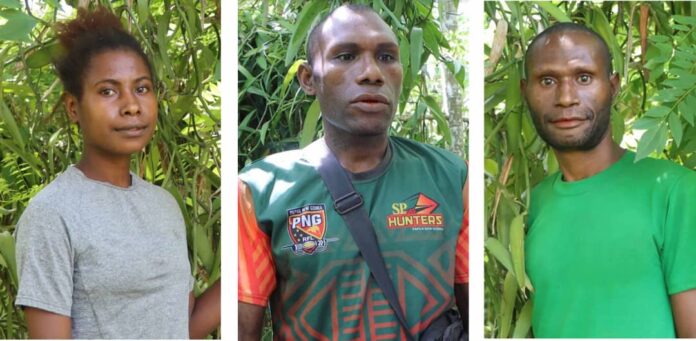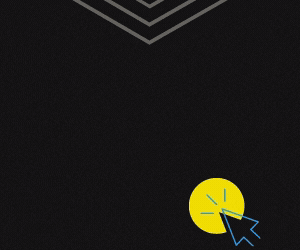IN the vibrant green fields of Wewak, Papua New Guinea, a remarkable transformation is underway.
A group of local vanilla farmers, with the support of the EU-STREIT PNG Programme, are rewriting their futures by tapping into the vast potential of overseas markets.
This initiative, backed by the Food and Agriculture Organization of the United Nations (FAO) and International Telecommunication Union (ITU), is not just about farming; it’s a holistic journey from the soil to the digital world, ensuring the prosperity of local communities through innovation, digitalization, and empowerment.
At the heart of this transformation are three dynamic youths from Mandi Village, who, with newfound digital expertise, have launched a gateway to global markets: a webpage showcasing their vanilla beans.
This digital platform has not only opened doors to an Australian buyer but has also served as a testament to their genuine, quality-driven business, marking a milestone in their journey from traditional farming to global trading.
Mongs AgTrade Services Limited symbolizes this leap forward. Benefiting from the FAO and ITU support, this group of farmers has successfully navigated the international market, now embarking on the second batch of export of high-quality vanilla beans (70 KG worth PGK 21,000, approx. USD 5,500) to Australia, a venture that has significantly boosted their earnings.
This story is the fruition of the EU-STREIT PNG Programme’s extensive support, which spans from improved farming techniques to mastering e-commerce.
Nicodemas Mainga, the group’s company secretary, shares their story of digital transition, stating, “The buyer saw our brief interest on our LinkedIn page, and we communicated through messenger application where they asked for our webpage: https:google.com/view/wiarumvanillamatslim/home.
“We created our e-marketplace page with the support of three youths empowered by ITU, who participated in digital skills and e-commerce trainings in Brandi Secondary School and Maprik Secondary School’s Resource Centers.”
This venture into digital marketing was a pivotal moment, encapsulating their commitment to quality and the integrity of their operations, bolstered by the comprehensive support from the EU-STREIT PNG Programme.
“Before the EU-STREIT PNG Programme’s intervention, our understanding of vanilla quality processing and marketing was at a local level.
“Now, the programme has advanced our skills to a higher level, improving both processing and marketing capabilities significantly,” commented Nicodemas.
Young farmer Jenelyn Marmber personifies the initiative’s commitment to youth and gender inclusivity, demonstrating the impactful role young women play in agricultural innovation and market expansion.
Her involvement is a powerful illustration of the Programme’s effectiveness in engaging the youth, stating, “We applied what we learned in the training led by ITU to create a webpage and e-marketplace page for our business.
“As a young woman in our business group, I feel good to actively contribute to finding a market for our vanilla. This is my first time contributing in a big way to support my villagers and I feel really good.”
“The quality of our vanilla was not at an export standard before EU-STREIT PNG, but now, thanks to the enhanced techniques and modern equipment provided by FAO under the Programme, our vanilla quality meets international standards, enabling us to command better prices,” added Jenelyn.
Prior to the EU-STREIT PNG’s intervention, the producers of Mandi Village cautiously navigated international trade, uncertain of their beans’ quality.
The introduction to the FAO’s Vanilla Value Chain Development initiative in 2021 marked a pivotal shift, empowering them with the knowledge and tools to enhance the quality of their vanilla.
This initiative has transformed their production, yielding healthier plants and superior vanilla beans, a testament to the effectiveness of the skills, technologies, and resources provided.
“Thanks to the Programme, we’ve upgraded from basic to modern cultivation and quality processing materials and equipment.
“This advancement has allowed us to achieve more in less time and significantly elevate our standard of living,” elaborated Joel Pilisau, the Group’s Company Director.
The emphasis on quality doesn’t stop with cultivation. Through the Programme, farmers have embraced advanced techniques and tools, such as climate-smart practices and solar dryers, which have significantly enhanced the quality of their vanilla beans.
“The solar vanilla dryer provided by the EU-STREIT PNG Programme has really helped us to condition our beans and that was one selling point for our quality vanilla beans, thank you EU-STREIT PNG,” said Joel.
This excellence is exactly what global markets are searching for, and the farmers of Mandi Village are rising to meet this demand.
The Programme’s wider support network is vast, offering training, tools, and access to innovative technologies and facilities.
The establishment of Resource Centres across the Sepik region is a cornerstone of this strategy implemented by ITU, providing farmers with lasting access to ICT and digital services, crucial for their ongoing development.
These centres play a critical role in supporting local farmers, ensuring they are equipped with modern farming techniques, business operation skills, online marketing, access to e-market, and digital commerce knowledge.
The story of Mandi Village’s farmers is an inspiring example of how targeted support can elevate traditional agriculture into a lucrative, sustainable enterprise with a global footprint.
Their journey from Papua New Guinea to the world stage serves as a powerful testament to the potential of local farmers to meet and surpass international quality standards, attracting global buyers in search of premium vanilla products.
This narrative transcends vanilla farming; it’s a tale of empowerment, technological innovation, and global connectivity. It illustrates a path for local farmers to envision and achieve greater aspirations, ensuring that the finest vanilla from Papua New Guinea reaches international markets, cultivated by its people and propelled by the vision and assistance of the EU-STREIT PNG Programme.
The EU-STREIT PNG, being implemented as a United Nations Joint Programme (FAO as leading agency and ILO, ITU, UNCDF and UNDP as implementing partners), is the European Union’s largest grant-funded initiative in the country.
It focuses on boosting sustainable and inclusive economic development in rural areas.
This is achieved by enhancing economic returns and opportunities within cocoa, vanilla, and fisheries value chains.
Additionally, the Programme strengthens and improves the efficiency of value chain enablers, including access to ICT and digital financial services. It also supports the development of sustainable, climate-resilient transport infrastructures and renewable energy solutions.
The Programme benefits two provinces: East Sepik and West Sepik.
Caption: Three youths, Jenelyn, Joel and Nicodemas, from Mandi village in East Sepik Province, Papua New Guinea, established an e-marketplace for the village MSME


